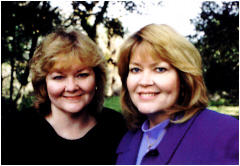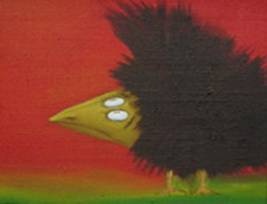would be fifty years along or even older, and an unkind person might call him bowlegged. Not a handsome man at all, but his brown eyes were kind, she could see that. Well then, many thanks for being my guide, he said, and she was about to go on her way, when he said in a hesitating voice, I know you'll probably say no, but I can't help asking if you might come in and have a cup of tea with me.
Through the carved wooden door he held open, a warm breeze drifted, bringing savory dinner smells and the clinking of dishes and the laughter of strangers. Human life seemed to have retreated into the hotel, leaving only poor forsaken souls to wander outside. He was looking down bashfully, about to say good night, when she answered with the same shyness, I suppose I could spare five minutes.
In they went, up the carpeted stairs to the dining room, where they sat down near the fireplace. A young waiter with big ears under his clipped red hair, wearing an overstarched shirt, brought them a heavy tray of tea and bread and jam, which was all they asked for, the hour being late.
They began to talk, and it was as if they'd never stop. His name was Francis Noonan and he had just moved from County Armagh to work in the slaughterhouse down the road. His wife had died the year before and the young ones were grown, so he had closed his shoemaker's shop and left the sad memories.
Yet sadness was never a minute stamped on him. He had a basic cheer which she liked very much, and a way of listening like he was a priest with only one parishioner. No one had ever listened so closely to her.
The warmth of the fire, the soothing tea, and his own kind way worked on her like a spell; she felt a drowsy contentment she hadn't felt since childhood and wondered where her nervousness had flown.
After an hour she said good-bye, and he asked if he could walk with her the next afternoon, to see more of the town. She said yes and ran off to see the old lady, whom she had forgotten about until then, dropping off her packages and leaving after five minutes, then wandering home under the saffron lamps trying to remember every single thing that had been said.
The next day they did walk. Sea-fog still ran along the streets, but it didn't steal her pleasure. Francis was fifty-five, he said, clearly a lonely man as she was a lonely woman. He did have a merry set of eyes, and though the rest of him reminded her a bit of a troll, she knew that she herself was no trophy, and all her old dreams came creeping up on her again.
And so they got into the habit of walking together after work. Jane bought herself a new plaid skirt and red sweater, and once he brought her flowers. It was all so old-fashioned, she knew, laughable to the young people who hung about the pier, a joke to the girls at the laundry. Jane and her troll! Jane in love!
Real life and real love didn't mix well, even then. The world was threatened then, as it is now, with war and poverty and hate and crime. Jane had believed that the stupid innocence she felt then could never survive. Yet it did survive; it flourished like a palm in the tropics.
Love it was, and she was sure Francis felt the same. She felt it in the touch of his hands on her and the cast of his face, and she herself was helpless to hide it. He was in love with her, and she with him, and damn the rest of them. In another month, he asked her to marry him.
Then they had a long serious talk. They were both poor, and he had no house to offer her; but they decided to rent a flat together and to try to save here and there for a house someday. Jane didn't care; the miracle was Francis, patient, peaceful, affectionate Francis. She felt womanly and alive. God had brought him to her!
They married and set up housekeeping. She cooked for Francis, washed his clothes, and tended to the place after she finished each day at the laundry. Francis brought home nice cuts from the slaughterhouse, made the fires, and fixed what went wrong. In the evenings they did little enough, sat by the fire and read, most likely. Most surprising was their lovemaking, when Francis turned out to be as passionate as he was hardworking.
Then one day, the last and most far-fetched of all her dreams came true when the doctor told Jane she was pregnant. He said she was old for a first baby but he thought it would be all right. And that night, what joy there was in the household!
So this went on for four or five months and everything was perfect. Francis had come to her on a night of fog and mist and brought all her life to her.
But as the baby grew inside her, she didn't sleep as heartily and had to get up in the night. And one night, she saw that Francis wasn't in bed with her.
Strange! He was nowhere in the apartment, nor was he right outside. She sat in the armchair shivering for a long time, until soon before dawn she smelled his pipe tobacco and in he came, looking very tired but at least not reeking of drink. She demanded to know where he'd been and he said many nights he couldn't sleep and went out walking, that it was an old habit, and she wasn't to worry, he hoped he had earned her trust. But she felt he was lying. The more questions she asked, the less he would say.
A worm began to burrow deep in her heart.
The next time it happened she pretended to be asleep. He was gone most of the night, and she thought to herself, he has another woman, dreams don't come true, I am a stupid fool, and like thoughts. She passed the night in a torture of doubt and worry, but when he came home all she showed him were her closed eyes and even breath.
The next day at the laundry they were all talking about it-about Alice McClary, who was stumbling home late the night before from a waterfront bar on Maiden Lane, only four blocks away, when she was brutally set upon, her throat cut and left in a doorway with no one hearing a thing-oh, it was awful, one of the girls at the laundry knew her sister. The police were always elsewhere, why couldn't they catch him and stop him, why do women always have to live in fear of men?
Jane listened with a such a chalky face that someone made her lie down on the leather couch in the owner's office.
She hardly spoke to Francis that night, and he might as well have saved himself the trouble of asking what was the matter. She turned her face away from him and brooded. And that night and every night after, she slept lightly, waiting.
Sure enough, a few nights after, he rose noiselessly from the bed and tiptoed out, carrying his shoes. She heard the click as the outer door closed and she, too, got up swiftly. Her coat hung by the door. In its pocket she put the largest knife from the kitchen. She was frightened but determined. She had to know, for the sake of the baby that was coming.
Francis stayed well ahead, walking with quick, preoccupied steps. The mists were moving in from the water and he was hard to keep in view. He went down a side road to the water, to a row of decrepit warehouses. While she peeked from around the corner, he drew out a key and went inside a boarded-up garage.
After five minutes he hadn't come out and curiosity overcame her. As quietly as she could, she went to the dirty window and peeked in. She saw a shape standing at a sort of table and heard muffled pounding sounds. And she felt quite certain-this was his own slaughterhouse, his lair, where he prepared to go out seeking his victims-the horror of it left her slumping against the wall, breathless, her eyes closed.
Then she smelled something familiar, a hand closed on her wrist, and she opened her eyes to see a masked face and the other hand with the knife raised high-
No time to scream-she took hold of the arm that held the knife and struggled bitterly in awful gasping silence. She thought, The baby! The baby! and she managed to knock the knife from his hand, but he had a firm hold on her coat as he scrabbled on the pavement for the knife, grunting-
But now she remembered her own knife and with her free right hand she drew it out and stabbed him in the back, leaving the knife which had gone in hard and clean. He fell to the pavement, groaning, and the life flowed out of him in gouts of blood.
Jane dropped to her knees beside him, moaning Francis, oh Francis. It seemed to her that she should pick up his knife at her feet and kill her own self in her misery-
The door to the garage opened and Francis looked out. When he saw her moaning beside the dead man, his jaw dropped and he ran out and picked her up, big as she was, and carried her inside and laid her trembling body down on the ground. Shouts and the pounding of feet sounded outside.
While he stroked her forehead and held water to her lips, she looked around the bright room in wonder. A workbench, tools lying on it, and shelves and shelves of shoes! Boots and ladies' shoes and little white leather baby shoes! And she looked at Francis, who wore a leather apron-he pointed at the rows of shoes on the walls, and he said, A little extra money for the baby.
Oh, it was one colossal whale of a shock, killing a murderer and becoming a heroine and finding her husband was a cobbler in the night just like an elf in a fairy tale-but she didn't lose the baby, who went full term and went to America and lived to be ninety-my own mother, and I believe every word!
And what, you may well ask, was the smell she smelled just as the malignant hand closed on her wrist?
Why starch, a smell she knew well from the laundry, the starched white shirt of the big-eared hotel waiter-a monster she sent where he deserved to go!
Permissions
“The Long Walk”-initially published in
“Success Without College”-initially published in
“Dead Money”-initially published in
“His Master's Hand”-initially appeared on FatBrain.com, 1999
“Gertrude Stein Solves a Mystery”-originally appeared on FatBrain.com, 1999
“The Furnace Man”-initially published in
“Chocolate Milkshake”-originally appeared on FatBrain.com, 1999
“Juggernaut”-initially published in
“Sandstorm”-originally appeared on FatBrain.com, 1999
“Lemons”-initially published in
“A Grandmother's Tale”-originally appeared on FatBrain.com
Perri O 'Shaughnessy



